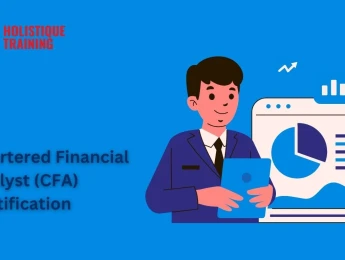Every company will have debts to manage and capital to maintain by using profits and income wisely. Typically, a company in some form of debt is a company that manages well to keep its taxes in order, manages its profits sensibly, and makes its money work for it. What many people don’t realise is that some debt is good.
Capital management means correctly utilising the inventory and stock and moving the money received and paid out sensibly to maintain the highest interest turnover and lowest tax implications.
Capital management can be a complex concept, but it requires a working knowledge of the whole operation to understand how to minimise the number of expenses paid out and use working capital to make the operation run smoothly.
The most important thing to learn about managing capital effectively is to look to the future. Future forecasting, predictions, market evaluations, and competitor critiques will allow a finance professional to understand where the market is likely to dip and what trends may hurt business capital. This will point to sensible and solid investments that will protect the capital going forward and increase the business's success while protecting against financial risk.
Upon completion of this course, participants will be able to:
- Develop an understanding of what working capital means to your organisation.
- Predict future trends and protect your company’s capital.
- Manage debt efficiently and understand where debt may be positive for your business.
- Understand the key liquidity ratios.
- Create operational recommendations based on capital earnings activities.
- Make key decisions regarding alternative credit policies and debt management.
- Make strategic choices to avoid financial risks.
- Understand the differences between internal working capital management and external interpretations of capital management.
- Manage inventory, terms of sale, and discount periods based on the company's credit period, revenue, and goods and services.
This course is designed for anyone responsible for managing and reporting on a company's finances and capital accounts to stabilise the financial position or make recommendations to secure the company’s financial future. It would be most beneficial for:
- Chief Financial Officers
- Treasurers
- Business Owners
- Accountants
- Financial Risk Assessors
- Operations Managers
This course used various adult learning methods to aid full understanding and comprehension. Participants will be engaged in fact-finding sessions on a group level to understand how capital management directly affects each area of their own company.
They will review presentations to develop their debt and capital management skills and see real-world examples of positive management by other financially successful companies. Finally, they will be presented with tools and techniques to manage their capital and identify financial risks they can take away and implement in their job roles.
Day 5 of each course is reserved for a Q&A session, which may occur off-site. For 10-day courses, this also applies to day 10
Section 1: The Importance of Capital Management in Your Operations
- What is working capital management?
- Good debt vs. bad debt.
- Your cash flow and profit relationship.
- Understanding how your finances relate to your operation.
- Risk identification and management.
- Your returns trade-off.
- Reviewing your inventory and debt policies.
Section 2: The Working Capital Cycle
- Your cash conversion cycle.
- Managing your inventory effectively.
- Debts and sales balance and management.
- Creditors and your day's payable outstanding amounts.
Section 3: Working Capital Optimisation - The Theory & Practice
- Maximum economic order quantities to maintain profits and remain within budget.
- Process development and continuous improvement.
- Controlling your credit.
- Managing your stock and reviewing trends based on market change.
- Managing debtors against your own debts.
- Offering credit and the risks to your business.
- Management reporting based on efficient KPIs.
Section 4: Capital Management Skills & Techniques
- Managing your treasury.
- Technology, spreadsheets, and automation.
- Automatic payment systems - the time-saving benefits.
- Cash flow management.
- Outsourcing your debt and cash flow management.
Section 5: The Cost of Capital & Credit-Related Funding
- Supplier debt and financing models.
- Utilising receivable funding.
- The cost of capital rates.
- Creating a credit-related fund system.
Section 6: The Impact & Strategic Decision-Making Process of Working Capital
- Ensuring company profitability.
- Developing an effective pricing model.
- Creditor firm management.
- Your policies and procedures.
- Working capital investments and corporate profitability.
Upon successful completion of this training course, delegates will be awarded a Holistique Training Certificate of Completion. For those who attend and complete the online training course, a Holistique Training e-Certificate will be provided.
Holistique Training Certificates are accredited by the British Assessment Council (BAC) and The CPD Certification Service (CPD), and are certified under ISO 9001, ISO 21001, and ISO 29993 standards.
CPD credits for this course are granted by our Certificates and will be reflected on the Holistique Training Certificate of Completion. In accordance with the standards of The CPD Certification Service, one CPD credit is awarded per hour of course attendance. A maximum of 50 CPD credits can be claimed for any single course we currently offer.
- Course Code PF1-113
- Course Format Classroom, Online,
- Duration 5 days














